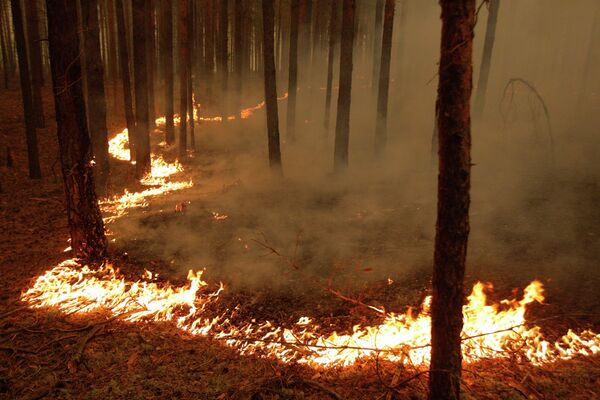The number of hotspots, visible in infrared light and possibly indicating wildfires, grew from 121 to 131 on Sunday, the fires.kosmosnimki.ru website receiving data from two NASA satellites said.
The number of wildfires, which stood at 400-500 in early August, has been gradually decreasing in the past weeks amid a cold spell in Central Russia.
The Aqua satellite, equipped with an atmospheric infrared sounder, and Terra, equipped with a thermal emission and reflection radiometer register any hotspots across Russia.
The Orenburg Region in southern Urals was the hardest hit, with 24 hotspots detected, followed by Siberia's Republic of Sakha (Yakutia), with 23 hotspots and Kurgan Region in Urals with 22 hotspots.
The Russian Emergency Situations Ministry successfully coped with the wildfires that ravaged large swathes of European Russia this summer, Minister Sergei Shoigu said on Sunday.
Hundreds of wildfires sparked by a record-breaking heat wave have been burning across central Russia for the past four weeks, causing some 12 billion rubles ($394 million) in damage, according to the emergencies ministry.
A total of 50 people were killed in the fires. Over 2,500 houses in 150 villages and towns were destroyed, leaving over 3,500 people homeless.
MOSCOW, August 30 (RIA Novosti)




